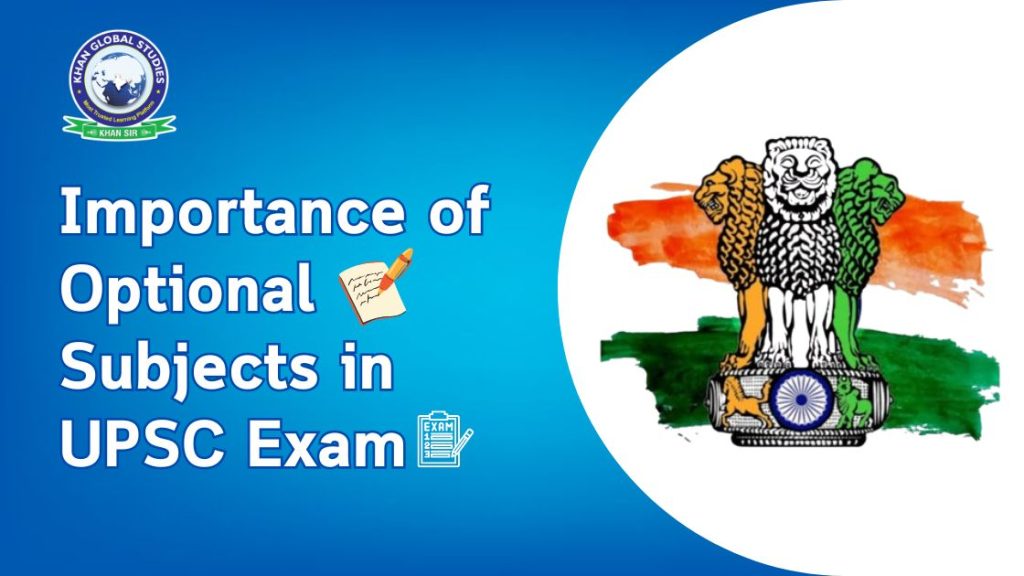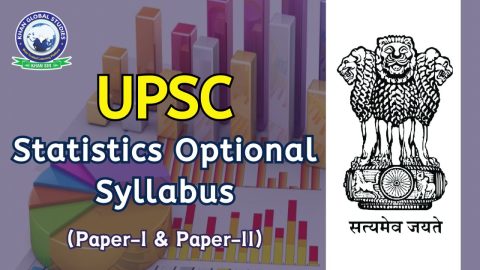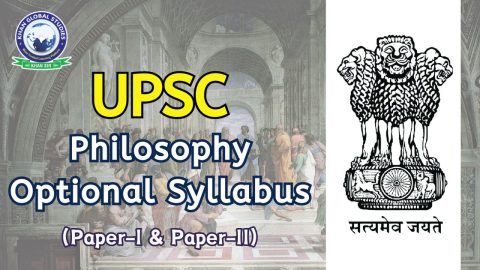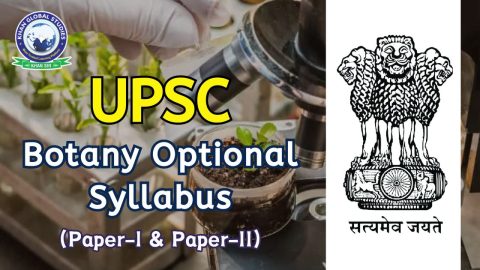Union Public Service Commission is India’s premier central recruitment agency which conducts various examinations by the Rules of examination as notified by the Government of India in a just, fair and impartial manner for making a merit-based selection and recommendation of candidates for various Group A and Group B Services of the Govt. of India.
Importance of Optional Subjects in the UPSC Exam
Optional subjects are an important component of the UPSC Mains exam. They allow candidates to demonstrate their expertise and expertise in a particular subject, thereby contributing to an overall assessment of their suitability for administrative roles.
1. Diversification of Knowledge
The primary role of optional papers is to enable candidates to diversify their knowledge. While the compulsory papers assess general awareness and analytical abilities, the optional papers allow candidates to delve deeper into topics of personal interest or academic background.
2. Demonstration of Expertise
Optional papers act as a platform for the candidates to showcase their expertise in a specific subject. It benefits individuals with a strong academic background or a keen interest in a particular field, giving them a chance to shine in areas where they have in-depth knowledge.
3. Personalized Selection
The inclusion of optional papers recognizes the diverse educational backgrounds of the candidates. This ensures that the selection process is not biased towards any specific discipline, thereby giving equal opportunity to individuals from different academic streams to showcase their abilities.
4. Scoring Ability
Optional papers provide a chance for the candidates to score well and improve their overall rank. A strong performance in optional subjects can have a significant impact on the final results, sometimes overcoming any challenges faced in the compulsory paper.
5. Success Strategy
It is important to prepare an effective strategy for the optional paper. Candidates should choose the subjects wisely, considering their strengths, interests and scoring trends in previous examinations. A well-thought-out strategy can contribute to a candidate’s success in the UPSC exam.
How many Optional Subjects in UPSC?
UPSC Optional Subject List consists of a total of 48 subjects, out of which candidates have to select only one. Some of the popular UPSC optional subjects include:
- Agriculture
- Animal Husbandry and Veterinary Science
- Anthropology
- Botany
- Chemistry
- Civil Engineering
- Commerce and Accountancy
- Economics
- Electrical Engineering
- Geography
- Geology
- History
- Law
- Management
- Mathematics
- Mechanical Engineering
- Medical Science
- Philosophy
- Physics
- Political Science and International Relations (PSIR)
- Psychology
- Public Administration
- Sociology
- Statistics
- Zoology
- Literature of any one of the following languages: Assamese, Bengali, Bodo, Dogri, Gujarati, Hindi, Kannada, Kashmiri, Konkani, Maithili, Malayalam, Manipuri, Marathi, Nepali, Oriya, Punjabi, Sanskrit, Santali, Sindhi, Tamil, Telugu, Urdu, and English.
Preparation Tips for UPSC Optional Subjects
Preparing for optional subjects in the UPSC exam requires a systematic and focused approach. Here are some preparation tips to help you tackle your chosen optional subject effectively:
- Become thoroughly familiar with the syllabus of your optional subject. Divide it into small topics and sub-topics to create a clear roadmap for your preparation.
- Choose standard and reliable study material for your optional subject. Refer to books, online resources and study material provided by coaching institutes or trusted sources.
- Answer Writing is important for the main examination. Practice writing answers to previous year’s question papers and mock tests. Focus on structuring your answers, presenting your arguments logically, and maintaining a consistent flow.
- Find ways to integrate current affairs with your elective subject. Understand the contemporary relevance of topics in your subject and stay updated with recent developments.
- Analyze UPSC previous year question papers to understand the pattern, question types and weightage given to different subjects.
- If possible, take guidance from subject experts or experienced teachers. They can provide valuable insights, clear doubts and guide effective preparation strategies.
Conclusion
Optional papers play an important role in the UPSC exam. They allow candidates to showcase their expertise, diversify their knowledge, and personalize their selection process. Candidates should approach the optional papers strategically, recognizing their impact on success in this highly competitive examination.










Dear khanglobalstudies.com owner, You always provide practical solutions and recommendations.